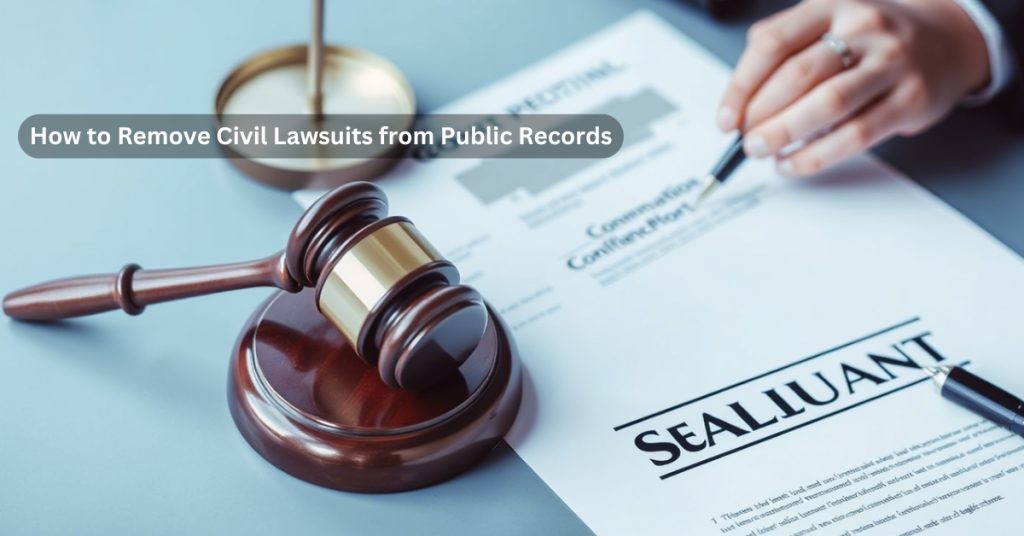
The visibility of civil lawsuits in public records can have significant implications for individuals and businesses alike. Whether it’s a past dispute that you wish to forget or a concern about how a lawsuit might affect your reputation, understanding the process of removing civil lawsuits from public records is crucial. This comprehensive guide will walk you through the steps, legal considerations, and strategies available to help you navigate this complex landscape.
Understanding Public Records
Public records are documents or pieces of information that are not considered confidential and are maintained by government agencies. These can include court documents, property records, and more. In the context of civil lawsuits, public records may contain:

- Case Filings: Initial documents filed by parties involved in the lawsuit.
- Court Orders: Decisions made by the court regarding the case.
- Judgments: Final decisions made by a judge or jury.
Why Remove Civil Lawsuits from Public Records?
The reasons for wanting to remove civil lawsuits from public records can vary widely:
- Reputation Management: A lawsuit can tarnish an individual’s or business’s reputation, affecting job prospects and business opportunities.
- Privacy Concerns: Details disclosed in court documents can be sensitive and personal.
- Financial Implications: Negative perceptions stemming from public lawsuits can lead to lost business or employment opportunities.
Can You Remove Civil Lawsuits from Public Records?
Yes, it is possible to remove or seal civil lawsuits from public records, but the process can be intricate and varies by jurisdiction. Here are some common methods:

1. Expungement
What is Expungement?
Expungement is a legal process that allows individuals to have certain criminal or civil records sealed or erased. This means that while the record still exists, it is no longer accessible to the general public.
How to File for Expungement:
- Determine Eligibility: Not all cases qualify for expungement. Check local laws regarding eligibility.
- File a Petition: Submit a formal request to the court outlining why your record should be expunged.
- Attend a Hearing: In some cases, you may need to appear before a judge who will decide whether to grant your request.
2. Sealing of Records
What Does Sealing Entail?
Sealing a record means that it is hidden from public view but still exists within the court system. This option may be available for certain types of cases.
Steps to Seal Records:
- Research Local Laws: Understand what types of cases can be sealed in your jurisdiction.
- File a Motion: Similar to expungement, you will need to file a motion with the court.
- Present Your Case: You may need to demonstrate why sealing is necessary.
3. Protective Orders
In some situations, you can request a protective order during litigation that limits access to sensitive information disclosed in court documents. This can help keep certain details private even if the case remains on record.
4. Online Reputation Management
If removing or sealing your lawsuit isn’t possible, consider employing online reputation management strategies:

- SEO Techniques: Use search engine optimization (SEO) strategies to push negative results down in search rankings.
- Content Creation: Develop positive content about yourself or your business that ranks higher than negative results.
5. Hiring Professionals
Navigating the complexities of removing civil lawsuits from public records can be overwhelming. Consider hiring professionals such as:
- Legal Experts: Attorneys specializing in expungement and record sealing can provide valuable guidance.
- Reputation Management Firms: These firms can assist with online content suppression and reputation repair strategies.
Steps to Take if You Want to Remove a Civil Lawsuit
- Consult with an Attorney
- Seek legal advice on your options for expungement or sealing records.
- Gather Documentation
- Collect all relevant court documents related to your case.
- File Necessary Petitions
- Submit petitions for expungement or sealing according to local laws.
- Attend Hearings
- Be prepared to present your case in court if required.
- Monitor Online Presence
- Regularly check online platforms for any mentions of your lawsuit and take action if necessary.
Challenges You May Encounter
Removing civil lawsuits from public records is not always straightforward. Here are some challenges you might face:
- Jurisdictional Variations: Laws differ significantly between states; what works in one area may not apply elsewhere.
- Cost Factors: Legal fees and filing costs can add up quickly.
- Time Consumption: The process can take several months or even years depending on various factors.
Conclusion
Removing civil lawsuits from public records is an achievable goal but requires careful planning and execution. By understanding your options—whether through expungement, sealing records, or employing online reputation management techniques—you can take significant steps towards protecting your privacy and reputation. Consulting with legal professionals is highly recommended to navigate this complex process effectively.
By following these guidelines and utilizing available resources, you can work towards successfully removing unwanted civil lawsuit records from public view while ensuring compliance with legal standards and maintaining ethical considerations throughout the process.